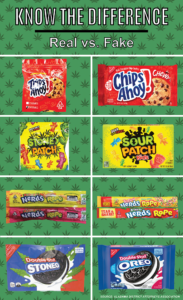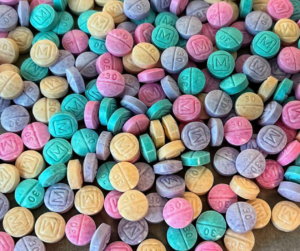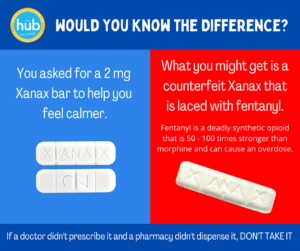Parents & Educators – How to talk to your kids
The tween, teen and young adult years can be confusing, complicated and formative. Understanding what’s happening socially and developmentally, and how it can intersect with substance use, is fundamental to setting the stage for healthier outcomes. Open and honest conversations are one of the most powerful tools parents can use to connect with and protect their kids. When tackling some of life’s tougher topics, especially those about drugs and alcohol, just figuring out what to say can be a challenge. Here are a few conversation points on how to talk with your child, no matter their age.
Open and honest conversations are one of the most powerful tools parents can use to connect with and protect their kids. When tackling some of life’s tougher topics, especially those about drugs and alcohol, just figuring out what to say can be a challenge. Here are a few conversation points on how to talk with your child, no matter their age.
- Always keep conversations open and honest.
- Come from a place of love, even when you’re having tough conversations.
- Balance positive reinforcement and negative reinforcement.
- Keep in mind that teachable moments come up all of the time.
 Young people are being targeted with brightly colored “rainbow fentanyl,” the government drug agency warns. “They’re doing this to get new users, to appeal to younger users. We’re finding it all over the social media platforms. Rainbow pills are all over,” said the administrator of the Drug Enforcement Administration. Drug cartels are using brightly colored “rainbow fentanyl” pills to target young people, the head of the Drug Enforcement Administration warned, signaling a new threat in the opioid crisis. DEA Administrator Anne Milgram said the drug is being sold in pills and powders that come in a variety of colors, shapes and sizes intended to look like candy. Sometimes traffickers even nickname the products “Sweet Tarts” and “Skittles” after real candy. Click Here for More
Young people are being targeted with brightly colored “rainbow fentanyl,” the government drug agency warns. “They’re doing this to get new users, to appeal to younger users. We’re finding it all over the social media platforms. Rainbow pills are all over,” said the administrator of the Drug Enforcement Administration. Drug cartels are using brightly colored “rainbow fentanyl” pills to target young people, the head of the Drug Enforcement Administration warned, signaling a new threat in the opioid crisis. DEA Administrator Anne Milgram said the drug is being sold in pills and powders that come in a variety of colors, shapes and sizes intended to look like candy. Sometimes traffickers even nickname the products “Sweet Tarts” and “Skittles” after real candy. Click Here for More
#TIPS FOR CONVERSATIONS WITH YOUR CHILD ABOUT DRUGS
This is a pivotal time for parents in helping their kids make positive choices when faced with drugs and alcohol. Teens are savvy when it comes to this topic, and they need detailed and reality-driven messages from you.- Make sure your teen knows your rules and the consequences for breaking those rules — and, most importantly, that you really will enforce those consequences if the rules are broken. Research shows that kids are less likely to use tobacco, alcohol and other drugs if their parents have established a pattern of setting clear rules and consequences for breaking those rules. Kids who are not regularly monitored by their parents are four times more likely to use drugs.
- Model healthy behaviors. Make it clear that you disapprove of all alcohol, tobacco and drug use.
- Let your teen in on all the things you find wonderful about them. They need to hear a lot of positive comments about their life and who they are as an individual — and not just when they make the basketball team, cheerleading team, math club, or do well on a test. Positive reinforcement can go a long way in preventing drug use among teens.
- Show interest in and discuss your child’s daily ups and downs. You’ll earn your child’s trust, learn how to talk to each other, and won’t take your child by surprise when you voice a strong point of view about drugs.
- Get to know your kid’s friends and their parents, and talk with those parents about their approach to supervision and their stance on substance use.
- Encourage your child to use your home for socializing. You can give them a private space, if possible, but keep an eye on them.
- Assure your child they can call you to be picked up whenever needed, no questions asked.
- Talk about their need for acceptance and to fit in. Explain that real friends will give them space to be themselves and won’t make them do anything they’re uncomfortable with.
- Don’t just leave your child’s anti-drug education up to their school. Ask your teen what they’ve learned about drugs in school and then build on that with additional topics, such as how and why chemical dependence occurs; the unpredictable nature of dependency and how it varies from person to person; the impact of drug use on maintaining a healthy lifestyle; or positive approaches to stress reduction. Click Here for More
#TIPS FOR EMOTIONAL AND PSYCHOLOGICAL PAIN
Whether it’s the pressure of everyday teen drama or the emotional toll of family problems, stress or trauma, some tweens/teens use substances to dull the real pain in their lives. Loneliness, low self-esteem, depression, anxiety disorder and other mental health issues are commonly associated with teen substance abuse. Many of these issues may occur in combination with one another, each compounding the intensity of others. Feelings of being an outsider and longing to be included and liked by others are pretty pronounced during the teen years. If the kids your teen wants to be friends with, or is hanging out with, are drinking or using substances, they may feel that they need to participate as well or risk being left out. Some teens see substance use as an easy path to make friends, fitting in or being accepted with the “right” crowd.
What Parents Can Do:
 Offer empathy and compassion. Let your child know you understand. Acknowledge that everyone struggles sometimes.
Offer empathy and compassion. Let your child know you understand. Acknowledge that everyone struggles sometimes.- Remind your child that you are there for support and guidance, and it’s important to you that they are healthy and happy and make safe choices.
- Model healthy coping skills like exercise, meditation or mindfulness. Show your kids how to learn from mistakes and disappointments.
- Brainstorm together to identify healthy ways to manage the stress in their life (getting more sleep, outdoor activities, having one-on-one time together, etc.) Let your child offer suggestions and help them think through their ideas.
- If your child is suffering, reassure them that you are there to help them and you will seek out appropriate professional help and then follow-through.
- The best way to prevent your child from taking negative risks is to replace them with healthy risks. Click Here for More
#BE AWARE OF DEADLY ADDITIVES – WOULD YOU KNOW THE DIFFERENCE
Teens are probably already aware of the basic dangers of drugs, but they may not know about counterfeit pills or other substances being laced with fentanyl. Show them photos of counterfeit versus real pills and how they look alike. Let them know fentanyl causes deadly overdoses and it is being mixed in with all kinds of drugs including heroin, cocaine, MDMA. Methamphetamines and counterfeit “prescription” pills. Marijuana is also being mixed with things such as embalming fluid, or the hallucinogen PCP, according to Partnership to End Addiction. Click Here for More Substances Laced with Fentanyl: How to Protect Loved Ones – Partnership to End Addiction (drugfree.org)#WHAT ELSE CAN PARENTS DO
- Be on the same social media platforms as your kids so you can monitor what they are doing and who their friends are.
- Adjust settings on phones to turn off location monitoring on social media apps and block content and apps that you don’t want your kids accessing.
- Check browser history for any suspicious activity or concerning search terms.
- If you suspect drug use, monitor the mail for any suspicious packages.
- Get familiar with common slang and hidden emoji meanings.
- DOC – Drug of Choice
- PAL – Parents are Listening
- BRB – Be Right Back
- P911 – Parent Alert
- 420 – Marijuana
- KPC – Keeping Parents Clueless
